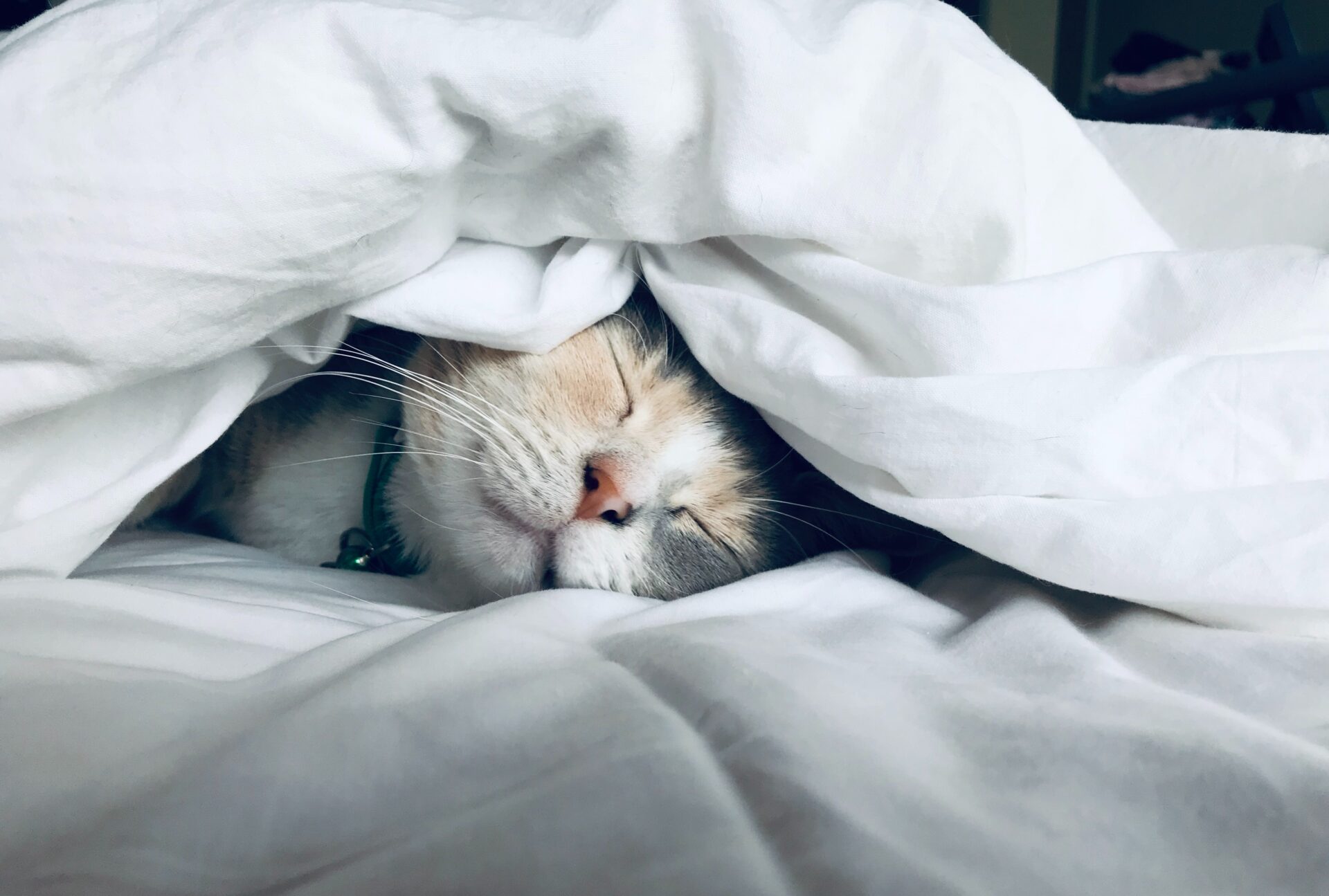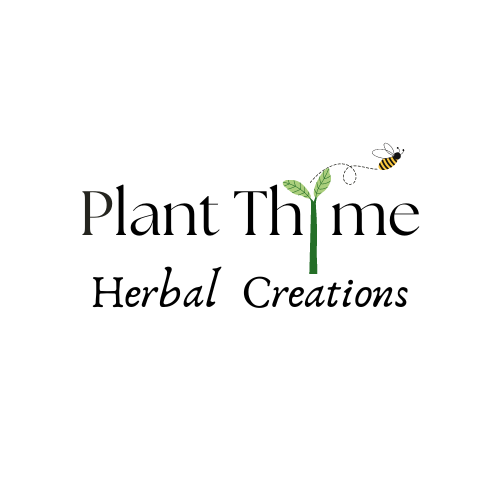Top 3 Herbs to Help Cure Insomnia & How to Use Them

What exactly is insomnia and how can we cure or at least remedy it naturally? Before we get into the troubles of not getting enough zzz’s at night, let’s begin with why sleep is so important for overall well-being, shall we?
For starters, sleep is when the body heals and regenerates. It really is that simple. The human body is so fascinating and amazing to me that I could write post after post about how impressive it is, and well, I just might!
There is a reason why many health gurus recommend not eating too close to bedtime. This is because, rather than the body using its energy to digest food while in rest mode, it is using that time and energy to heal any ailments that the body has been experiencing. Digestion is a pretty extensive process for the body.
Sleep, or lack thereof, can affect every aspect of the body. According to NHLBI (national heart, lung and blood institute), about 50-70 million Americans suffer from sleep disorders. Sleep plays a vital role within every function of your body: the nervous system, circulatory system, respiratory system, immune system and even your metabolism. nhlbi
Disclaimer: Plant Thyme utilizes some affiliate links which may result in a small commission from clicks that result in a purchase. Not all links that are published within this blog post are affiliate links.
Sleep deprivation can lead to physical and mental health issues, is linked to many chronic health problems including high blood pressure, obesity, heart disease and diabetes. Lack of adequate sleep can also affect one’s mood, their focus and even have a negative impact on a person’s digestive health, which is a leading health concern for many individuals.
Oftentimes, lack of sleep can even be to blame for chronic digestive issues. Bloating, constipation, sour stomach and even acid reflux can worsen if a person is not getting enough sleep. Clearly, sleep is crucial for health and well-being.
Regardless of age, sleep is a vital component in overall health, maybe even one of the most vital components. So now that we know sleep is a critical component of health, how do we combat the occasional or more frequent bouts of insomnia? Let’s start with culprit number one
Caffeine
Ahh caffeine. I have a love/hate relationship with this substance. According to hsph, caffeine can block the effects of the hormone adenosine, which is responsible for deep sleep. Caffeine then binds to adenosine receptors in the brain which can then affect other hormones in the body that affect a person’s sleep, such as dopamine, serotonin, norepinephrine, melatonin and GABA. Caffeine intake later in the day can seriously affect a person’s ability to fall asleep and/or stay asleep.
Not willing to abandon the substance yet? Try instead to lessen the amount of caffeine you consume and abstain from the substance after 4 pm (if your average bedtime is about 10 or so). Otherwise, a good rule of thumb is no more caffeine around 6 hours before you plan on hitting the hay.
Sometimes this is easier said than done for a lot of us though. If that is the case, try to opt for some healthier versions than say an energy drink with 200 mg of caffeine or more and a bunch of other questionable ingredients. You could try some tea-green or black, both have a moderate amount of caffeine, but you’re also giving your body a healthy dose of antioxidants along with your caffeine kick. Moving on to culprit number 2
Anxiety and/or Restlessness
This is a common complaint among many insomniacs. There is so much on people’s plates these days that it is next to impossible to stop thinking long enough to fall asleep. There are ways to combat this though.
- Cut yourself some slack! You are one person and you can only do what you can do!
- Take some time throughout the day to just breathe. I know it sounds too easy, but it really does help to calm the body, especially before bedtime
- Make a list- a very realistic list- of the most necessary things that you would like to accomplish that day and another list for if I get to it
- Find a type of exercise that you enjoy (walking, running, stretching, yoga, pilates, hiking, bopping around to your favorite music, even cleaning (if you find enjoyment in that) anything that requires some type of movement for the body and make it a priority-even if it’s just for 10 minutes
- Watch or read something that interests you- like my blog for instance 🙂 but nothing too exciting, just something to relax your brain and get it ready for sleep.
- Drink a cup of sleepy-time tea (recipe at the end of this blog).
- When you’re laying in bed, think of thoughts that make you happy-things that you want in your life-and picture that, vividly. Really try to make an effort to do this, especially when your thoughts travel back to worrisome, this has helped me drift off to sleep more times than not.
- When all else fails, find your furry or not-so-furry pet and snuggle with them! This could be your pup(s), your kitty(s) or rat(s) or mouse(s) or bearded dragon(s) or gecko(s), maybe even your snake perhaps (you get the picture) and relish in the fact that they love and trust you like no other. That usually will have a calming effect on everyone involved.
More often than not, people are reaching for some over-the-counter pharmaceuticals to ease their troublesome sleep situation. My goal for this post is to broaden your medicine chest and share it with your new herbal apothecary. Pharmaceuticals will have their place, but they need not be stingy, they must learn to share their place with other, more pure remedies, like plants!
There are many different medicinal herbs that will help to alleviate some of those anxious/restless feelings, but today we are going to focus on How to fall asleep instead of why we cannot (much too much info for one blog post) Once that post is written, I will go ahead and link it to this.
Why herbal remedies? Well,
- Herbal remedies will not cause any negative side effects (unless you happen to have an allergic reaction which fortunately is not that common).
- Herbal remedies do not cause dependency like other pharmaceutical sleep aids.
- Herbal remedies can be made one time and last for years.
- Herbal remedies can be grown in your backyard, front yard, porch, or even your kitchen counter if conditions allow!
- Herbal remedies (especially homemade ones) can be extremely cost-efficient
- Herbal remedies can strengthen the body and provide it with wonderful plant compounds that the body needs.
- Herbal remedies can be enjoyable to make-and knowing exactly what your putting into your body is a nice byproduct too
Okay, Okay, let’s say that I have convinced you to try one of these herbal creations, now what? Well, continue on and I will share a couple of ideas-whether you dive into your own medicine-making abilities or you would rather someone else do the dirty work and you decide to buy a pre-made version, I will share the best of both.
Version 1- Make your own herbal sleep aid -Credit for this herbal creation goes to Rosemary Gladstar
Deep Sleep Tincture-Rosemary Gladstar
- What you will need
- Quart glass jar with a tight-fitting lid
- Cheese Cloth
- 1 part Valerian root
- ½ part Hops Flowers
- ½ part Lavender Flowers
- 100 Proof Vodka (brandy, pure grain, gin or anything that is 80 proof will work)
- *Alcohol can be substituted with Apple Cider Vinegar*
How To Make:
In a quart mason jar, add about 1 cup valerian root, 1 cup of hops flowers (Though it is 1 cup of hops like the valerian, it’s technically a “half” part, as hops weigh less and take up more room in the jar.) then add 2 Tablespoons of lavender flowers.
Pour in alcohol until it fills the jar about 1 or 2 inches above the herbs. The lighter herbs may float, so that inch space may be in the middle of the jar…that’s okay. Put a lid on and shake well. Mark where your liquid and herbs are. When the liquid gets absorbed by the plants (within the first few days), you may add more alcohol so that your level of liquid is 1 or 2 inches above the herbs (where your mark was). Label, then let sit for 4-6 weeks, out of direct sunlight. Shake often. Strain in a double stainless steel strainer lined in cheesecloth. Transfer into a dark-colored bottle with a dropper for ease of use.
How To Use: Take in small doses of 1/4 teaspoon to 1/2 teaspoon. You may take once in the evening, or every half hour, to every hour in the evening before going to bed. Try in small doses to see how your physiology interacts with it. The mixture will relax the body while promoting deep sleep.
Version 2-Tea
If you would prefer an herbal remedy that is readily available, while you’re waiting for your tincture to be ready, consider using those same ingredients in tea form.
Hops, valerian root, lavender, chamomile, skullcap, passion flower, lemon balm and hibiscus flower can all be used for a sleepy time tea.
Herbs can be purchased online: a few vendors that are highly reputable are Mountain Rose Herbs, Strictly Medicinal herbs and Starwest Botanicals (available on Amazon). Grab your tea kettle and a mesh or metal tea strainer and fill your strainer with your choice of the above herbs. You can play around with different variations to see what suits your taste buds best. Boil some water and fill your favorite mug and let those plants do their magic. The longer they steep, the more medicinal they become. Feel free to add in some honey or lemon to liven it up 🙂
Version 3– Buy from a reputable retailer
Gaia Herbs Herbal remedies in capsule form ( found in most health food stores, grocery stores, Amazon, and of course, online)
Mountain Rose Herbs- many tinctures available to purchase online
Whichever route you choose to take, I wish you health and wellness with every step. Explore the different herbs in your area. Pick one and learn everything there is to learn about it and when you’re done with that one, pick another one!
Thanks for reading! I wish you all health, sweet dreams and restful sleep tonight and every night to follow. Zzzzzz
-Nicki

[…] bouts of insomnia. If you’re interested in learning how to make that herbal remedy, I have a previous post that may be […]
[…] to health and wellness. Aromatherapy can help reduces symptoms of stress, anxiety, depression and insomnia, but it can also help to restore balance both spiritually and mentally, promote calmness and […]
[…] flowers can also be useful when treating insomnia. Flowers can be made into a tincture along with other herbs and taken nightly to induce restful […]
[…] I won’t get into the vast reasons why so many people have a hard time sleeping. I do have a previous post on herbal sleep remedies that may be helpful if you are one of those people. Sleep deprivation […]